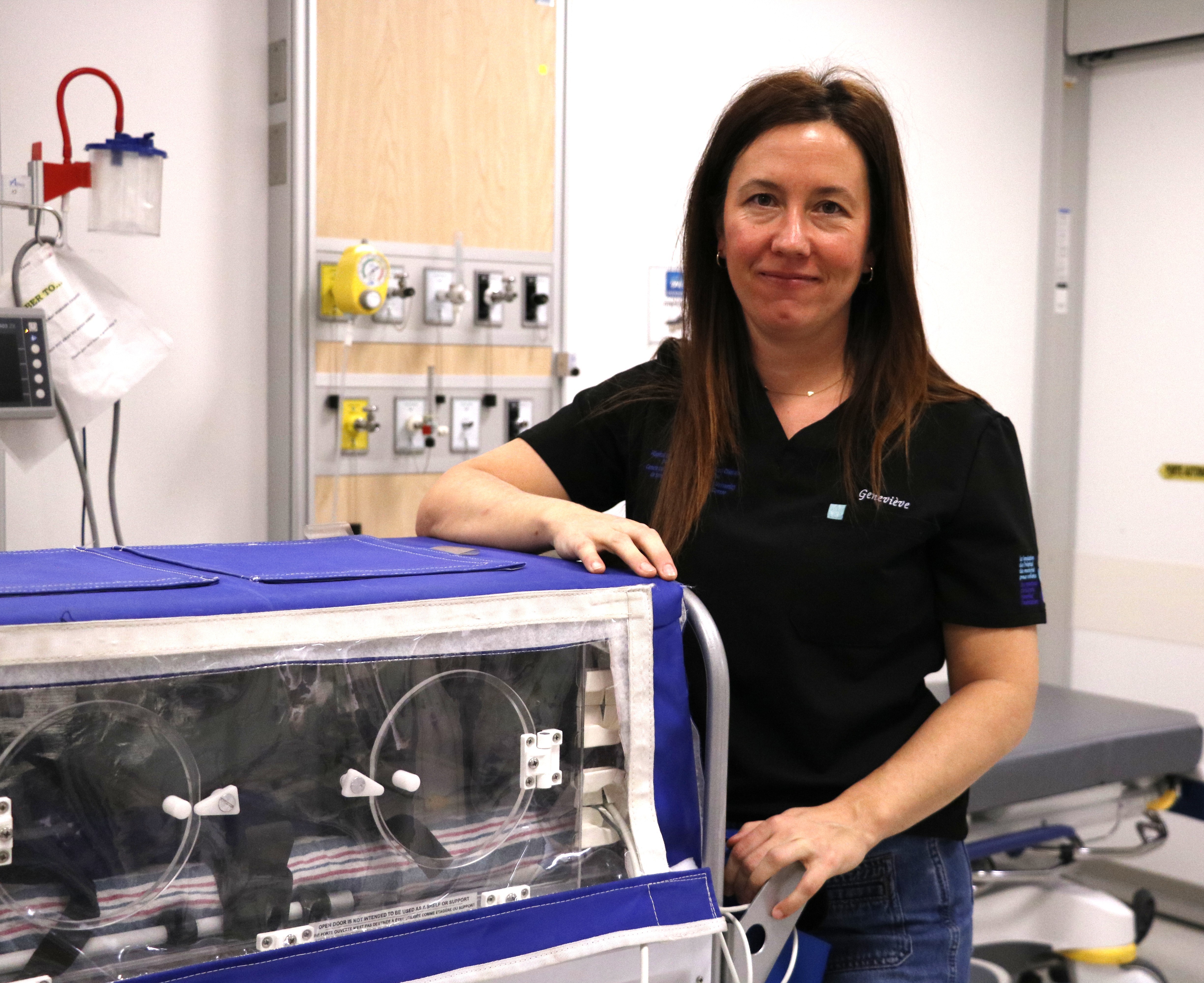
Celebrating Critical Care Transport Nurses at the MCH
18 February 2026
Rise in respiratory infections and measles outbreak: important infection prevention measures at the Montreal Children’s Hospital.
Read moreWelcome to the Montreal Children's Hospital

14 June 2016
16-year old Oumou Ly loves to perform. Whether it involves dancing, singing or acting, the active teen has a passion for pushing the limits of creative expression. But when it comes to managing her sickle cell anemia, Oumou knows when to push herself and when to slow down. “I know my limits and when I’ve reached them,” she says. “Having sickle cell anemia doesn’t really stop me from doing anything but it’s something I need to be mindful of.”
All in the red blood cells
Sickle cell anemia is an inherited blood disorder that affects a protein in red blood cells called hemoglobin. “In healthy people, these red blood cells are round and flexible. But in people with sickle cell disease, blood cells are irregularly shaped which can cause a range of health problems that can be serious if not properly managed,” explains Marie Gale, Oumou’s nurse in the Montreal Children’s Hospital’s Sickle Cell Clinic.
Specifically, these cells in sickle cell patients can get stuck in small blood vessels, creating a blockage, which can impair blood flow and oxygen delivery to parts of the body. People with sickle cell disease might experience health complications because their blood isn’t circulating through the body as well as it should. “The spleen, which normally acts as one of the body’s defense against infection, doesn’t function normally in patients with sickle cell disease. Therefore, these patients have a higher chance of getting sick, so it’s really important that we follow them from as early an age as possible to minimize possible complications,” explains Marie. “Pain is also a very common symptom of sickle cell disease, and the one that most people associate with the condition.”
A centre of expertise
The Montreal Children’s Hospital is one of four designated health centres in Quebec mandated to care for patients born with sickle cell disease, with a clinic that includes over 140 pediatric patients. “In previous years, the clinic grew sporadically as patients would get diagnosed later in life, usually after the age of 6 months old and even later,” says Marie. Thanks to the addition of sickle cell testing to the Quebec Newborn Screening Program in 2013, patients are now identified immediately after birth and the clinic has seen consistent growth over the last few years. The benefits, says Marie, are numerous for patients. “We can begin the education about sickle cell disease right away, before the children have any issues related to the condition,” she explains, adding thatsome complications can be prevented. “Because we know how prone our young patients are to infection, we can start them on antibiotics right away until the age of 5 or 6 years old to reduce the chances of serious infection.”
Gaining independence in managing a chronic disease
“I was diagnosed with sickle cell anemia when I was 6 months old,” says Oumou. “When I explain it to my friends, I basically just tell them that I have less of a defense against infection and that I can sometimes have a bit of pain.”
While she admits that she can experience bouts of pain such as headaches, a sore stomach or fatigue, Oumou says that managing her illness is made easier thanks to medication she takes daily. Oumou takes folic acid and Vitamin D and is also prescribed a drug called Hydrea. “In addition to being used to treat cancer, Hydrea also has shown key benefits for sickle cell patients by decreasing the number and severity of acute painful episodes when taken regularly,” explains Marie, who says many of the patients seen at the Children’s can have good results with this treatment.
In addition to managing her meds, Oumou must also be mindful of certain activities, such as swimming. “Swimming in cold water as well as prolonged exposure to cold temperatures, can precipitate pain crises, and can be problematic for some patients with sickle cell disease,” explains Marie. “As patients get older, like in Oumou’s case, they know which activities can be beneficial and which can be harmful. We encourage teenage patients to be more independent in managing their disease and Oumou is a great example of that.”
While independently managing her own illness, Oumou also provides some guidance to her 8-year old sister who also has the condition. “My sister and I go to our appointments together and do our blood tests together, and spend time together in the waiting room. Marie used to put puppets on my fingers after blood tests, but she doesn’t have to do that anymore!” she laughs.
When it comes to making time for fun, Oumou enjoys taking hip hop dance classes, singing and showcasing her talents on stage in any capacity. Having just recently participated in a dance show this spring, she says she plans on remaining active and continuing dance with her friends. And as school draws to a close for the year, Oumou has her calendar packed with an exciting family trip in just a few weeks when she will spend a month in Paris. “I can’t wait; it’s going to be great!”